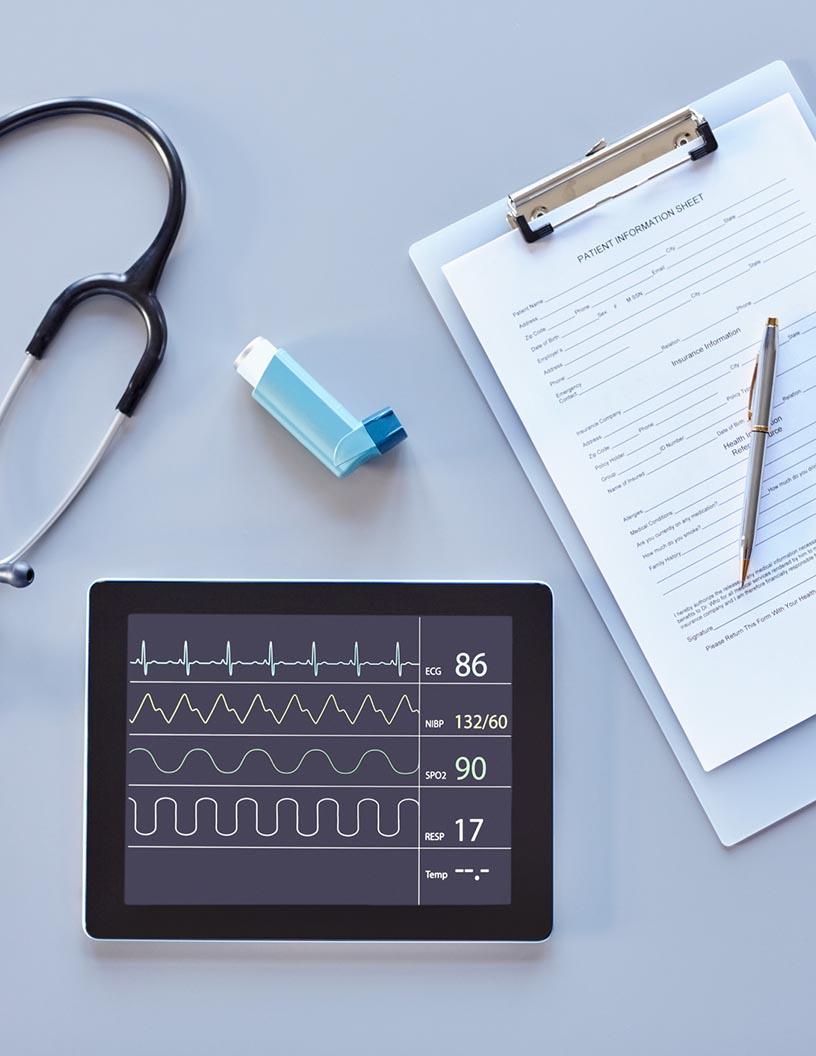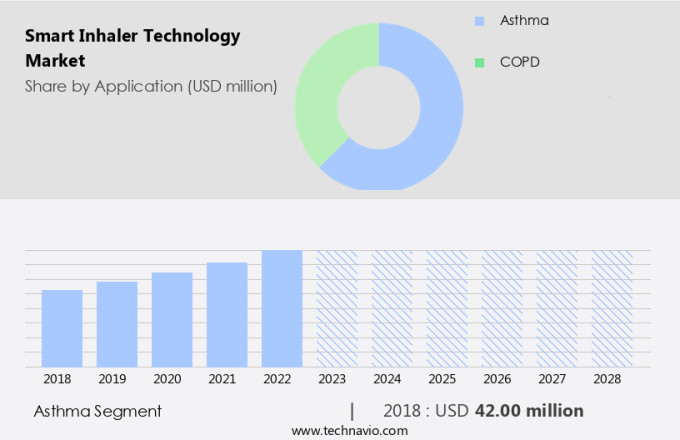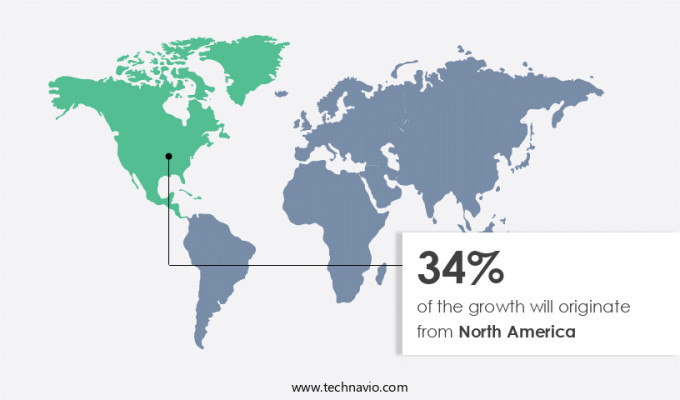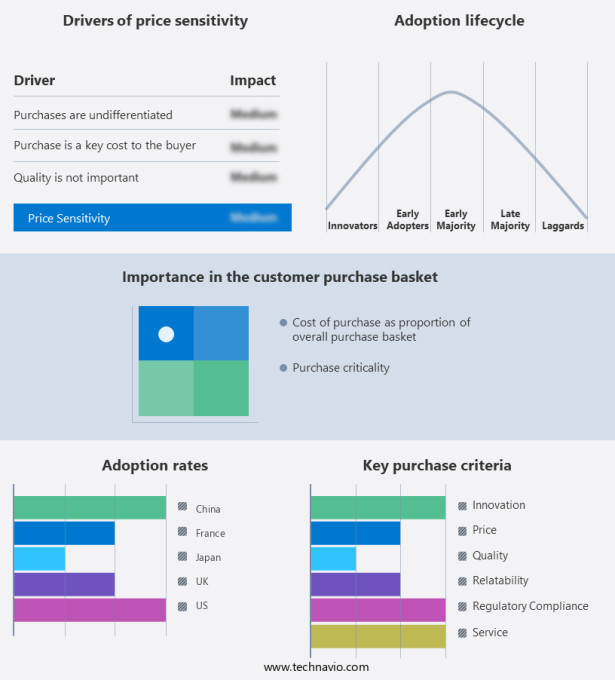Smart Inhaler Technology Market Size 2024-2028
The smart inhaler technology market size is forecast to increase by USD 62.4 million, at a CAGR of 12.01% between 2023 and 2028.
- The market is witnessing significant growth, driven by the rising prevalence of respiratory diseases and the availability of real-time feedback. The increasing burden of respiratory disorders, such as asthma and chronic obstructive pulmonary disease (COPD), is fueling the demand for advanced inhaler technologies. These devices enable better medication adherence, improved treatment outcomes, and enhanced patient engagement. However, the market faces challenges in its expansion, primarily due to the low product penetration in developing countries. Despite the potential benefits, affordability and accessibility remain major barriers to widespread adoption, particularly in regions with limited healthcare infrastructure and economic constraints.
- To capitalize on the market opportunities, companies must focus on developing cost-effective solutions and collaborating with local healthcare providers to expand their reach. Additionally, continuous innovation in technology and user experience will be crucial in addressing the challenges and driving market growth.
What will be the Size of the Smart Inhaler Technology Market during the forecast period?
Explore in-depth regional segment analysis with market size data - historical 2018-2022 and forecasts 2024-2028 - in the full report.
Request Free Sample
The market continues to evolve, driven by advancements in sensor integration, clinical trial methodology, and medication delivery systems. Smart sensors enable real-time usage tracking, ensuring compliance and optimizing dosing regimens. Clinical trials employ sophisticated methodologies, including pulmonary deposition analysis and medication delivery rate testing, to evaluate device efficacy. Security is a paramount concern, with data encryption ensuring patient privacy and confidentiality. Airflow sensors and inhalation efficiency metrics optimize drug delivery, while wireless data transmission and cloud storage facilitate remote patient monitoring and therapeutic drug monitoring. Smart inhaler design incorporates electronic control systems, breath actuation technology, and pressure sensor technology to enhance user experience and improve inhaler performance.
Aerosol characterization and lung deposition modeling aid in personalized medicine delivery and dosage accuracy control. Continuous innovation in inhaler design, from metered dose inhalers to advanced nebulizers, drives the market forward. Inhalation timing control and drug delivery system optimization further enhance device efficacy. Ongoing research and development in these areas promise to unlock new possibilities for smart inhaler technology, ensuring its continued relevance and growth in various healthcare sectors.
How is this Smart Inhaler Technology Industry segmented?
The smart inhaler technology industry research report provides comprehensive data (region-wise segment analysis), with forecasts and estimates in "USD million" for the period 2024-2028, as well as historical data from 2018-2022 for the following segments.
- Application
- Asthma
- COPD
- Product
- Inhalers
- Nebulizers
- Geography
- North America
- US
- Europe
- France
- UK
- APAC
- China
- Japan
- Rest of World (ROW)
- North America
By Application Insights
The asthma segment is estimated to witness significant growth during the forecast period.
Smart inhaler technology is revolutionizing asthma treatment by offering advanced monitoring, data collection, and communication capabilities. These devices enable real-time usage tracking, medication reminders, and dosage monitoring through mobile apps. This enhances patient adherence to prescribed medication schedules, leading to improved symptom control and reduced asthma exacerbations. Patients can monitor the number of doses remaining in their inhalers, preventing unexpected shortages and ensuring timely refills. Inhaler performance metrics, such as medication delivery rate, inhalation efficiency, and aerosol particle size, are assessed to optimize dosing regimens and improve lung deposition. Smart sensors integrate with electronic control systems, providing data encryption security and wireless data transmission to cloud storage for analysis.
Clinical trials employ lung function monitoring, drug delivery system testing, and device efficacy assessments to validate smart inhaler technology's effectiveness. By offering personalized medicine delivery, breath actuation technology, and pressure sensor control, smart inhalers cater to individual patient needs, enhancing therapeutic outcomes.
The Asthma segment was valued at USD 42.00 million in 2018 and showed a gradual increase during the forecast period.
Regional Analysis
North America is estimated to contribute 34% to the growth of the global market during the forecast period. Technavio's analysts have elaborately explained the regional trends and drivers that shape the market during the forecast period.
In the market, North America leads due to its favorable conditions, including a high prevalence of chronic obstructive pulmonary disease (COPD), increasing awareness, and numerous companies. Advanced research and development facilities in the US and Canada foster innovative product development, leading to frequent product launches and market growth. Companies invest significantly in research and development to create new products, enhancing their competitive edge and expanding their customer base. Smart inhaler technology integrates medication reminder systems, particle dispersion profiles, dosing regimen optimization, mobile app integration, inhaler performance metrics, aerosol characterization, lung deposition modeling, real-time usage tracking, smart sensor integration, clinical trial methodology, and more.
These features improve medication adherence, optimize dosing, and ensure accurate drug delivery. Personalized medicine delivery, lung function monitoring, and drug stability analysis are also crucial aspects of smart inhaler technology. Airflow sensor technology, inhalation efficiency, wireless data transmission, cloud data storage, electronic control systems, inhaler device design, and drug delivery systems are essential components that contribute to the technology's effectiveness and success. Companies prioritize data encryption security to ensure patient privacy and confidence. Inhaler performance metrics, such as medication delivery rate, inhalation timing control, and dosage accuracy control, are essential for assessing device efficacy and optimizing patient care.
Remote patient monitoring and therapeutic drug monitoring enable healthcare providers to closely monitor patients' conditions and adjust treatments accordingly.
Market Dynamics
Our researchers analyzed the data with 2023 as the base year, along with the key drivers, trends, and challenges. A holistic analysis of drivers will help companies refine their marketing strategies to gain a competitive advantage.
The market is witnessing significant growth due to the increasing demand for advanced inhaler drug delivery systems. These devices, equipped with breath actuation technology, enable precise medication dosing and improve inhalation efficiency. The efficacy of smart inhalers is being extensively tested through pulmonary deposition modeling techniques and real-time usage tracking analysis. Moreover, security features like wireless data transmission and medication reminder systems ensure patient compliance. Personalized medicine delivery approaches, aerosol particle size distribution analysis, and smart inhaler sensor data analytics further enhance the effectiveness of these devices. Inhalation efficiency improvement strategies and dosage accuracy control mechanisms are crucial aspects of smart inhaler technology, ensuring optimal therapeutic outcomes. Lung function monitoring systems and remote patient monitoring platforms facilitate real-time monitoring and analysis of patient health. Inhalation timing control methods and compliance improvement technology assessments contribute to optimizing dosing regimens through dosing regimen optimization algorithms and therapeutic drug monitoring systems. Drug stability testing protocols are essential to maintain the efficacy and safety of medications in smart inhalers, ensuring the technology adheres to market research report standards.
What are the key market drivers leading to the rise in the adoption of Smart Inhaler Technology Industry?
- The escalating incidence of respiratory diseases serves as the primary catalyst for market growth in this sector.
- The global market for smart inhaler technology is experiencing significant growth due to the increasing prevalence of respiratory diseases, such as asthma and COPD. With millions of people affected by these conditions, there is a pressing need for innovative solutions that can improve disease management and enhance patients' quality of life. Smart inhalers offer real-time data and personalized treatment insights, making them an attractive option for individuals requiring ongoing management of their respiratory conditions. Key features of smart inhalers include medication reminder systems, compliance improvement strategies, dosing regimen optimization, mobile app integration, inhaler performance metrics, aerosol characterization, lung deposition modeling, and real-time usage tracking.
- These advanced capabilities enable better disease management and improved patient outcomes. The growing demand for smart inhalers is driven by the chronic nature of respiratory diseases, which necessitate ongoing management to prevent exacerbations and complications. By providing real-time data and personalized insights, smart inhalers can help patients and healthcare professionals optimize treatment plans and ensure effective medication use. Moreover, the integration of mobile apps and other digital health tools with smart inhalers offers additional benefits, such as remote monitoring, teleconsultations, and data analysis. These features can help improve patient engagement and adherence, leading to better health outcomes and reduced healthcare costs.
- Overall, the market is poised for continued growth as more individuals seek effective solutions for managing their respiratory conditions. The market's potential is further amplified by the increasing adoption of digital health technologies and the growing recognition of the importance of personalized, data-driven care.
What are the market trends shaping the Smart Inhaler Technology Industry?
- Real-time feedback is increasingly becoming a market trend due to its availability and benefits. This professional and knowledgeable virtual assistant confirms the significance of real-time feedback in today's business environment.
- Smart inhaler technology integrates advanced sensors and clinical trial methodology to optimize medication delivery and enhance respiratory health management. Airflow sensor technology and medication delivery rate monitoring enable users to achieve optimal pulmonary deposition and improve inhalation efficiency. Data encryption security ensures the confidentiality of personal health information transmitted wirelessly to cloud data storage. Real-time feedback on inhaler usage and environmental conditions offers users personalized guidance, promoting adherence to prescribed regimens and improving medication efficacy. Smart inhalers provide valuable insights into users' respiratory health, allowing them to make informed decisions regarding their lifestyle and treatment plans.
- The integration of these advanced technologies in smart inhalers fosters a more harmonious and immersive user experience, emphasizing the importance of effective medication management and respiratory health monitoring.
What challenges does the Smart Inhaler Technology Industry face during its growth?
- In developing countries, the low product penetration represents a significant challenge impeding the growth of the industry.
- The market faces growth challenges in developing countries due to limited awareness among end-users regarding connected healthcare systems and the slow adoption of advanced technological platforms. Developing countries, such as India, Bangladesh, Pakistan, and some African nations, have underdeveloped healthcare facilities compared to North America and Western Europe. The shortage of skilled healthcare professionals in these regions reduces the number of consultations, hindering early diagnosis of respiratory diseases and limiting the adoption of smart inhalers. These devices, which include electronic control systems, inhaler device designs, patient adherence monitoring, lung function monitoring, aerosol particle size measurement, personalized medicine delivery, breath actuation technology, dosage accuracy control, and pressure sensor technology, are gaining popularity in developed countries.
- However, their market penetration in developing countries is limited due to the aforementioned reasons. To overcome these challenges, efforts are being made to increase awareness about the benefits of smart inhalers and the importance of managing respiratory diseases effectively. Collaborations between healthcare providers, technology companies, and governments are crucial in promoting the adoption of these devices in developing countries. Additionally, affordable pricing and financing options can help make smart inhalers more accessible to a larger population. In conclusion, the market is poised for growth, but its penetration in developing countries is hindered by a lack of awareness and limited healthcare infrastructure.
- To overcome these challenges, stakeholders must focus on increasing awareness, collaborating to make these devices more affordable, and improving healthcare infrastructure in developing countries.
Exclusive Customer Landscape
The smart inhaler technology market forecasting report includes the adoption lifecycle of the market, covering from the innovator's stage to the laggard's stage. It focuses on adoption rates in different regions based on penetration. Furthermore, the smart inhaler technology market report also includes key purchase criteria and drivers of price sensitivity to help companies evaluate and develop their market growth analysis strategies.
Customer Landscape
Key Companies & Market Insights
Companies are implementing various strategies, such as strategic alliances, smart inhaler technology market forecast, partnerships, mergers and acquisitions, geographical expansion, and product/service launches, to enhance their presence in the industry.
3M Co. - This technology-driven firm specializes in advanced inhaler systems, including the Intelligent Control Inhaler. Users benefit from on-screen instructions for optimal medication usage.
The industry research and growth report includes detailed analyses of the competitive landscape of the market and information about key companies, including:
- 3M Co.
- Adherium Limited
- Amiko Digital Health Ltd.
- AptarGroup Inc.
- AstraZeneca Plc
- Cognita Labs
- Cohero Health Inc.
- Findair Sp. z o. o.
- Infineon Technologies AG
- Novartis AG
- OPKO Health Inc.
- Philip Morris International Inc.
- ResMed Inc.
- Sensirion AG
- Teva Pharmaceutical Industries Ltd.
Qualitative and quantitative analysis of companies has been conducted to help clients understand the wider business environment as well as the strengths and weaknesses of key industry players. Data is qualitatively analyzed to categorize companies as pure play, category-focused, industry-focused, and diversified; it is quantitatively analyzed to categorize companies as dominant, leading, strong, tentative, and weak.
Recent Development and News in Smart Inhaler Technology Market
- In January 2024, Propell Technologies, a leading player in the market, announced the launch of its latest product, the "SmartHub," a digital health platform designed to connect and analyze data from multiple smart inhalers. This platform aims to improve medication adherence and patient outcomes (Propell Technologies Press Release).
- In March 2024, Merck KGaA, a global pharmaceutical and life sciences company, entered into a strategic partnership with Novartis to co-develop and commercialize a digital therapeutic solution for asthma using Merck KGaA's smart inhaler technology. This collaboration intends to enhance the management of asthma and improve patient care (Merck KGaA Press Release).
- In May 2024, ResMed, a leading provider of medical devices and cloud-connected health solutions, completed the acquisition of Propeller Health, a digital health company specializing in smart inhaler technology. The acquisition aimed to strengthen ResMed's digital health offerings and expand its presence in the respiratory care market (ResMed Press Release).
- In February 2025, the European Commission approved the marketing authorization for the NovoHaler® ELLIPTA® 63/125 ?g and 132/25 ?g smart inhalers, which use Propeller Health's digital health platform to provide real-time medication usage data. This approval marks a significant milestone in the adoption of smart inhaler technology in Europe (European Medicines Agency Press Release).
Research Analyst Overview
- The market is witnessing significant advancements, driven by the integration of microfluidic devices and digital therapeutic solutions. User interface design plays a crucial role in ensuring ease of use and patient compliance. Remote health technology enables real-time dosage tracking analysis and dose counter mechanism, enhancing treatment effectiveness. Pharmaceutical engineering and drug formulation design are essential for ensuring material compatibility testing and particle size distribution. Inhalation safety testing and device usability testing are critical components of the regulatory approval process. Compliance rate assessment is facilitated through wireless communication protocols and data security protocols. Health information exchange and device maintenance protocols are essential for optimizing patient care.
- The drug development process benefits from system validation testing and sensor calibration methods. Clinical study endpoints are monitored through patient feedback systems and advanced inhaler designs. Pharmaceutical companies are investing in data analytics platforms and data security protocols to streamline the device manufacturing process. Smart inhaler sensors provide valuable insights into drug aerosolization and inhalation drug delivery, enabling precise dosing and improved treatment outcomes. The regulatory approval process for these devices is rigorous, requiring extensive testing and validation to ensure safety and efficacy. Overall, the market is poised for growth, driven by the integration of advanced technologies and a focus on patient-centric care.
Dive into Technavio's robust research methodology, blending expert interviews, extensive data synthesis, and validated models for unparalleled Smart Inhaler Technology Market insights. See full methodology.
|
Market Scope |
|
|
Report Coverage |
Details |
|
Page number |
169 |
|
Base year |
2023 |
|
Historic period |
2018-2022 |
|
Forecast period |
2024-2028 |
|
Growth momentum & CAGR |
Accelerate at a CAGR of 12.01% |
|
Market growth 2024-2028 |
USD 62.4 million |
|
Market structure |
Fragmented |
|
YoY growth 2023-2024(%) |
10.39 |
|
Key countries |
US, UK, France, China, and Japan |
|
Competitive landscape |
Leading Companies, Market Positioning of Companies, Competitive Strategies, and Industry Risks |
What are the Key Data Covered in this Smart Inhaler Technology Market Research and Growth Report?
- CAGR of the Smart Inhaler Technology industry during the forecast period
- Detailed information on factors that will drive the growth and forecasting between 2024 and 2028
- Precise estimation of the size of the market and its contribution of the industry in focus to the parent market
- Accurate predictions about upcoming growth and trends and changes in consumer behaviour
- Growth of the market across North America, Europe, Asia, and Rest of World (ROW)
- Thorough analysis of the market's competitive landscape and detailed information about companies
- Comprehensive analysis of factors that will challenge the smart inhaler technology market growth of industry companies
We can help! Our analysts can customize this smart inhaler technology market research report to meet your requirements.




